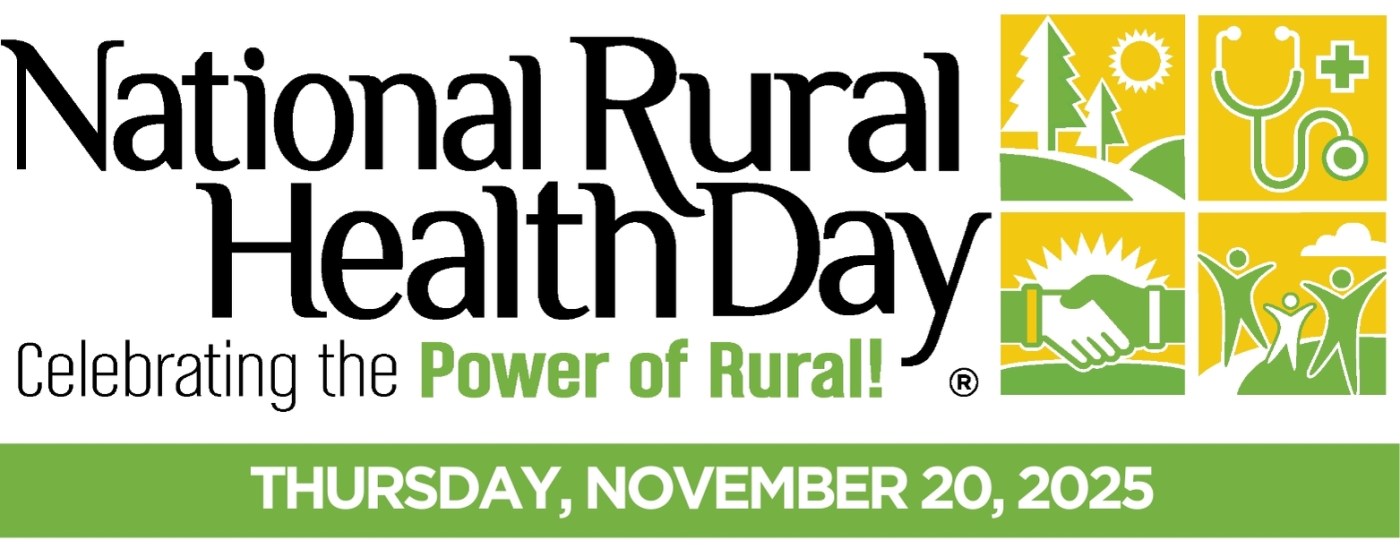Health
National Rural Health Day Highlights Health Challenges in Rural Areas

November 20 marks National Rural Health Day, a day dedicated to acknowledging the efforts of healthcare providers and communities striving to meet the unique health needs of rural populations in the United States. Sponsored by the National Organization of State Offices of Rural Health (NOSORH), the day aims to raise awareness of the significant health challenges faced by rural residents.
Despite the appealing aspects of rural living, such as community ties and natural beauty, statistics reveal troubling health trends. According to the National Rural Health Day, the Rural Health Information Hub, the National Institutes of Health, and various reports from the Centers for Disease Control and Prevention (CDC), rural Americans are statistically more likely to die prematurely from conditions such as heart disease, cancer, lung disease, and stroke. Additionally, they face heightened risks of fatalities from road accidents, suicide, and drug overdose.
Geographic factors play a significant role in these health disparities. Many rural residents experience long distances to healthcare providers and limited public transportation options. These barriers can prevent regular check-ups and necessary preventive screenings, ultimately leading to poorer health outcomes. Delays in emergency services due to extended travel distances can also exacerbate critical situations.
The shortage of healthcare services in rural areas compounds these challenges. Fewer healthcare providers, especially in specialty fields, can lead to fragmented care. High turnover rates among providers further complicate continuity of care, frustrating patients who must frequently establish new relationships. Many rural community hospitals struggle with funding, resulting in fewer available services and longer waits for life-saving treatments.
Social factors also contribute to the health landscape in rural communities. A culture of independence often discourages individuals from seeking help for health issues, particularly mental health concerns. The stigma surrounding mental health and the reluctance to “air dirty laundry” can prevent residents from accessing necessary support and resources.
Rural populations also contend with an aging demographic that presents complex health needs. Many residents face challenges such as a lack of affordable health insurance options, high tobacco use rates, and unsafe driving habits. These factors, combined with uncontrollable elements like genetics and past environmental exposures, create a daunting health environment.
To combat these challenges, individuals can take proactive steps to improve their health outcomes. Understanding health insurance options is crucial. Most plans cover annual wellness check-ups and preventive screenings, which can facilitate early illness detection. For those without employer-provided insurance, the NCHD Equity & Outreach team offers assistance through Connect For Health Colorado, the state’s health insurance marketplace.
Transportation barriers can be addressed through programs offered by the Northeast Colorado Association of Local Governments (NECALG) and the non-emergent medical transportation program under Health First Colorado (Medicaid). These services can help residents access necessary medical care.
Adopting a healthy lifestyle is another vital step. Maintaining a balanced diet and regular exercise can significantly reduce the risk of chronic conditions. The NCHD provides free programs, such as the Diabetes Prevention Program, aimed at promoting healthier lifestyle choices.
Tobacco cessation is paramount, as tobacco use contributes to numerous long-term health issues, including chronic obstructive pulmonary disease (COPD) and various cancers. The NCHD offers resources to support individuals on their journey to quit tobacco.
Furthermore, practicing safe driving is essential for reducing road-related fatalities. The Colorado State Patrol reports that up to 90% of child passenger safety seats are installed incorrectly, highlighting the need for proper education and resources in this area.
Mental health support is equally critical in rural areas. The combination of transportation issues and social stigma can lead to isolation, making it essential for residents to access mental health resources. The NCHD provides information on programs such as the LifeSource Project, which offers financial assistance for youth mental health therapy, and the CredibleMind platform, which helps individuals manage their mental well-being.
As National Rural Health Day serves to shine a light on these pressing issues, it is a reminder that, despite the challenges of rural living, individuals can take charge of their health. By leveraging available resources and fostering community support, residents can work towards overcoming the obstacles they face.
-

 World4 weeks ago
World4 weeks agoGlobal Air Forces Ranked by Annual Defense Budgets in 2025
-

 World4 weeks ago
World4 weeks agoMass Production of F-35 Fighter Jet Drives Down Costs
-

 Top Stories4 weeks ago
Top Stories4 weeks agoNew ‘Star Trek: Voyager’ Game Demo Released, Players Test Limits
-

 Science4 weeks ago
Science4 weeks agoTime Crystals Revolutionize Quantum Computing Potential
-

 World4 weeks ago
World4 weeks agoElectrification Challenges Demand Advanced Multiphysics Modeling
-

 Business4 weeks ago
Business4 weeks agoGold Investment Surge: Top Mutual Funds and ETF Alternatives
-

 Top Stories4 weeks ago
Top Stories4 weeks agoDirecTV to Launch AI-Driven Ads with User Likenesses in 2026
-

 Lifestyle4 weeks ago
Lifestyle4 weeks agoDiscover Reese Witherspoon’s Chic Dining Room Style for Under $25
-

 Entertainment4 weeks ago
Entertainment4 weeks agoFreeport Art Gallery Transforms Waste into Creative Masterpieces
-

 Health4 weeks ago
Health4 weeks agoGavin Newsom Critiques Trump’s Health and National Guard Plans
-

 Business4 weeks ago
Business4 weeks agoUS Government Denies Coal Lease Bid, Impacting Industry Revival Efforts
-

 Science4 weeks ago
Science4 weeks agoRemembering David E. Brest: A Life Dedicated to Nature and Family









